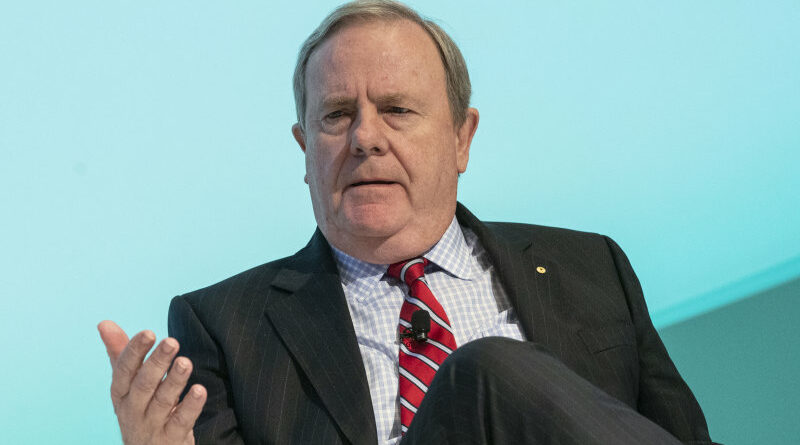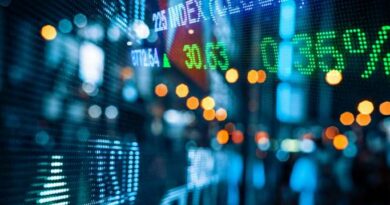‘Challenging and volatile’: Costello warns investors to brace for lower returns
Future Fund chair Peter Costello has warned investors to brace for a challenging and volatile future as central banks move to raise rates to address inflation and the sovereign wealth fund posts negative returns for the March quarter.
Costello, who is also Nine Entertainment chair (owner of this masthead), said investors should expect lower returns for longer, with rising inflation, higher interest rates and geopolitical uncertainty combining to create ongoing market uncertainty.
Future Fund chair Peter Costello has reiterated warnings about low returns for investors. Credit:Yianni Aspradakis
The Future Fund, which manages $201 billion, returned negative 1.5 per cent for the three months to March 31. Costello said unfavourable markets had largely been driven by “rising inflation which will lead to higher interest rates around the world and in Australia”.
“As central banks tighten monetary policy to rein in inflation and geopolitical tensions continue to create shocks in investment markets, we have been positioning for what will be a challenging and volatile future,” he said.
“As we have been saying for some time, investors should expect lower returns than in the past over the long term.”
The Australian Bureau of Statistics reported last week that inflation had reached 5.1 per cent year on year, its highest level since 2001, fuelling the federal election debate over cost of living pressures and which major party was better placed to manage the economy.
The Reserve Bank of Australia is expected to raise official interest rates from 0.1 per cent to 0.25 per cent at its meeting on Tuesday. It would be the first interest rate increase since November 2010 and the first in an election campaign since 2007.
Former Reserve Bank governor Glenn Stevens hiked rates during the 2007 federal election campaign, which angered then-treasurer Costello and prime minister John Howard. Costello has more recently said the RBA’s credibility had been damaged by its plan to retain rates at historic lows until 2024 and has called for tighter monetary policy.
Future Fund chief executive Dr Raphael Arndt said the team had carefully positioned the portfolio to navigate the challenging environment.
“Looking ahead we expect returns will be harder to achieve, with ongoing fragility and disruption to global markets and economies combined with rising inflation continuing as key themes for some time to come,” he said.
The Future Fund has returned 8.1 per cent per year since it was formed in 2006, though it slipped into the red this quarter. The fund is responsible for a number of government-owned investment schemes, including the Medical Research Future Fund, Aboriginal and Torres Strait Islander Land and Sea Future Fund, Future Drought Fund, Emergency Response Fund and the DisabilityCare Australia Fund. Each of these funds returned between negative 0.1 and negative 1.5 per cent for the March quarter.
The Future Fund has 8.5 per cent allocated to Australian equities and 22.4 per cent in global equities. The sovereign wealth fund was one of the first financial institutions to commit to divesting from Russia following the Kremlin’s invasion of Ukraine in February. The fund’s total exposure to Russia was around $200 million and Costello said divesting had been difficult.
“Sanctions on Russia and the closure of the Moscow stock exchange to foreigners have hampered efforts to sell. We will wind down the holdings as market conditions allow,” Costello said.
The Business Briefing newsletter delivers major stories, exclusive coverage and expert opinion. Sign up to get it every weekday morning.
Most Viewed in Business
From our partners
Source: Read Full Article



